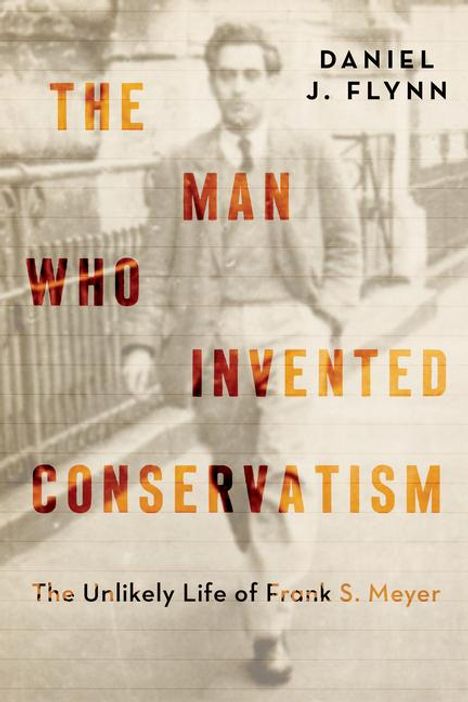Daniel J Flynn: The Man Who Invented Conservatism, Gebunden
The Man Who Invented Conservatism
- The Unlikely Life of Frank S. Meyer
(soweit verfügbar beim Lieferanten)
- Verlag:
- Encounter Books, 08/2025
- Einband:
- Gebunden
- Sprache:
- Englisch
- ISBN-13:
- 9781641774499
- Artikelnummer:
- 11924012
- Umfang:
- 544 Seiten
- Gewicht:
- 1021 g
- Maße:
- 226 x 147 mm
- Stärke:
- 48 mm
- Erscheinungstermin:
- 19.8.2025
- Hinweis
-
Achtung: Artikel ist nicht in deutscher Sprache!
Klappentext
"This is, simply put, the best biography I have read in years."
--The Spectator World
Frank Meyer devised the blueprint for American conservatism--fusionism--championed by Barry Goldwater, Ronald Reagan, and so many to this day. Yet long before and far away, Communists in London chanted "Free Frank Meyer!" to block the deportation of a comrade who was their cause célèbre. Those fervent Marxists could never have predicted that their hero would one day provide the intellectual energy necessary to propel conservatives to political power.
The Man Who Invented Conservatism unveils one of the twentieth century's great untold stories: a Communist turned conservative, an antiwar activist turned soldier, and a free-love enthusiast turned family man whose big idea captured the American Right. This intellectual migration coincided with a clandestine affair inside 10 Downing Street, service as a lieutenant to the man who later constructed the Berlin Wall, and neighborly chats with the pop-star and poet celebrity next door. Present at the creation of National Review, Meyer helped launch Joan Didion's writing career. From H. G. Wells to Henry Kissinger to Milton Friedman, he rubbed shoulders with everyone who mattered.
Having discovered Meyer's previously unexamined correspondence in an old soda warehouse, Daniel J. Flynn documents this saga in The Man Who Invented Conservatism, exposing the rivalries, jealousies, friendships, and fights that shaped the movement and what it means to be a conservative today.

